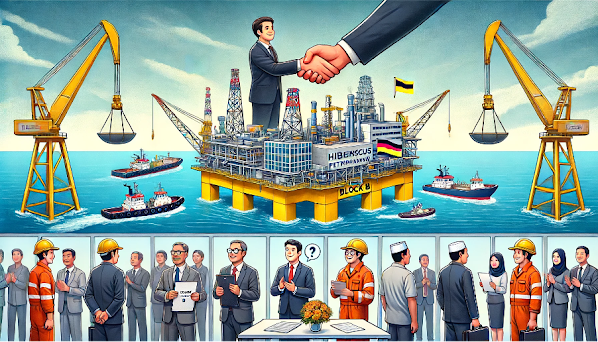Brunei has faced criticism following the U.S. State Department's recent Trafficking in Persons (TIP) Report, which downgraded the nation to Tier 3. Shared with countries like Sudan, this ranking positions Brunei as one of those making the least effort to combat human trafficking, potentially leading to sanctions or reductions in U.S. assistance.
Tier 3 countries are those that fail to meet the minimum standards set forth by the Trafficking Victims Protection Act of 2000 (TVPA) and do not make significant efforts to comply, according to the United States.
Secretary of State Antony Blinken, in his message to readers of the report, highlighted the global scale of human trafficking, stating, "Around the globe, an estimated 27 million people are exploited for labour, services, and commercial sex."
Brunei has not convicted any traffickers for seven consecutive years, according to the report, and has allegedly punished trafficking victims through prosecution or deportation. This assessment comes as a blow to Brunei, which was on the Tier 2 watch list in 2023, indicating that it was making efforts to address the issue.
The Brunei government has not officially commented on the report. However, public reaction has been swift and varied. Many citizens expressed frustration and disbelief over the report's findings. Some see the ranking as a wake-up call for the authorities to strengthen their measures against human trafficking, while others perceive it as politically motivated.
One commentator remarked, "This is a serious allegation by the U.S., but it also highlights the need for our law enforcement agencies to review and improve their procedures to effectively deal with human trafficking." Another noted, "The U.S. has zero credibility when it comes to human rights. Only brainwashed Zionists believe in them."
The National Development Party (NDP) of Brunei Darussalam also weighed in on the issue, expressing deep concern over the TIP Report's findings.
The NDP stated, "We believe that the assessment provided in the TIP Report is overly harsh and does not accurately reflect the efforts and initiatives undertaken by Brunei to combat human trafficking. The absence of convictions over the past seven years does not equate to a lack of action or commitment from our authorities. It is crucial to recognise the complexities and challenges involved in addressing human trafficking cases, which often require extensive investigations and international cooperation.
The NDP acknowledged the need for continuous improvement and called for a thorough review of current practices and policies to ensure they align with international standards and best practices in victim support. They also urged the U.S. State Department to engage in constructive dialogue with Brunei, recognising the efforts made and offering support and cooperation rather than punitive measures.
The downgrade has sparked a debate within Brunei about labour and immigration issues. Some citizens pointed out the poor living conditions of foreign workers and the issue of runaway employees, while others criticised the U.S. for its perceived hypocrisy in addressing human rights abuses.
One resident remarked, "The U.S.'s condemnation of us for human trafficking is akin to calling the pot black." "They supply arms and money to countries that commit atrocities, but they judge us on human trafficking."
There is also concern about the implications of the report on Brunei's international relations and potential sanctions. "If the U.S. imposes sanctions, it could have serious repercussions for our country," a local businessman said. "We need to address these issues urgently and demonstrate our commitment to fighting human trafficking."
Despite the criticism, some Bruneians recognize that the report highlights a real issue that requires immediate attention. "We seriously need to get our act together and curb this matter urgently," one citizen stated. "I have great pity for the victims, many of whom are poor Bangladeshis seeking a better life."
As Brunei grapples with the implications of the TIP Report, it calls on both the government and the public to reflect on the country's efforts and strategies in combating human trafficking, ensuring that the protection of vulnerable individuals remains a priority. The NDP reaffirms its commitment to fighting human trafficking and ensuring that Brunei remains a safe and just society for all, calling on all stakeholders to join forces in this crucial endeavor. (MHO/06/2024)


.jpeg)


